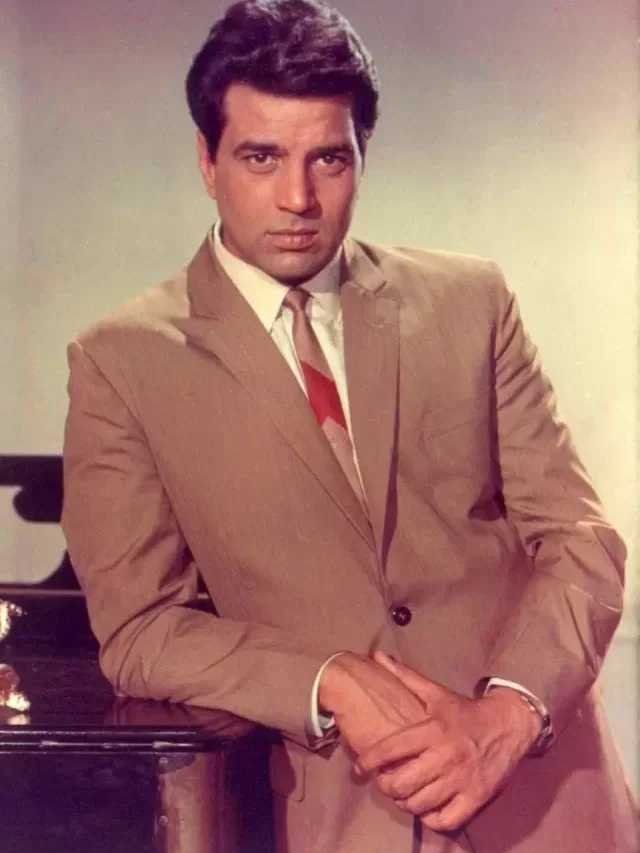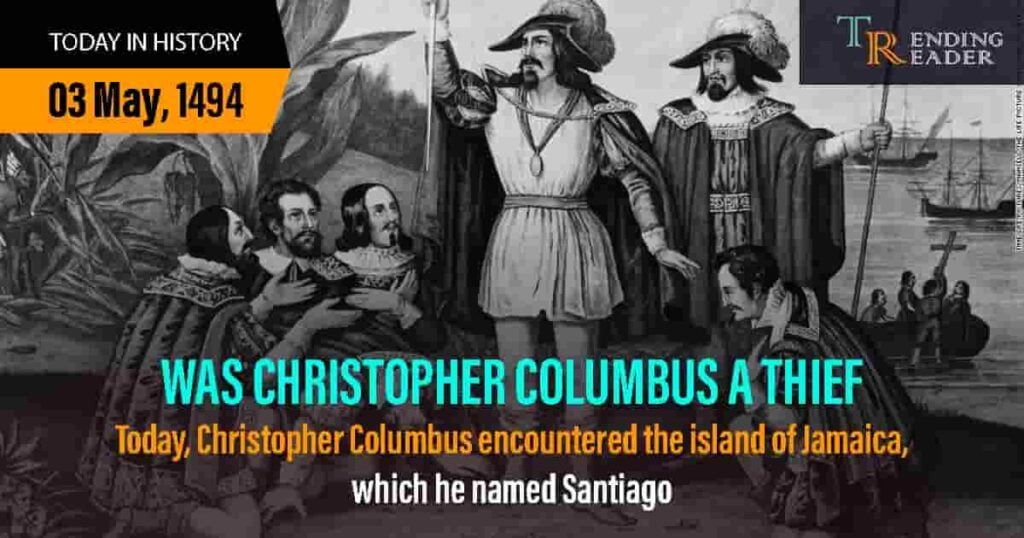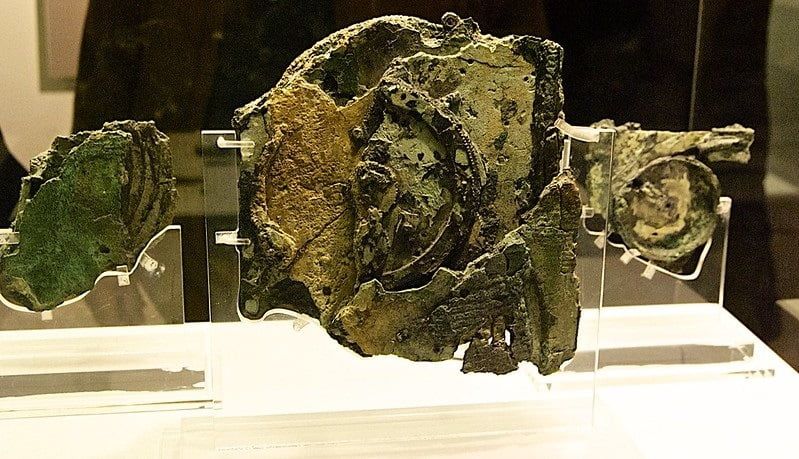A born explorer, Christopher Columbus set on four voyages in his lifetime and subsequently discovered the American continent, which was then unknown to him! On May 3, 1494, European explorer Christopher Columbus encountered the island of Jamaica, which he named Santiago. Read this article to deeply know who was Christopher Columbus and was Christopher Columbus a thief?
Who Was Christopher Columbus?
Christopher Columbus, the Discoverer of the American continent, who is being worshiped till today as a great voyager and mariner in the United States was born somewhat between 25th August and 31st October 1451 in the Republic of Genoa.
Though he is celebrated by scholars and politicians each year on the month of October as a courageous and inspiring figure, modern-day historians and researchers are arguing that Columbus was a tyrant mariner and the founding father of the slave trade and also prompted violence, rapes, and killings in the indigenous islands which resulted in mass killings of the locals. But, apart from establishing slavery and violence, was Christopher Columbus a thief? How did Christopher Columbus die?
This article will take you on a voyage to the life of the great Voyager and will uncover amazing facts about his expeditions to a New World.
The Introduction Of Slave Trade And Violence – The Expeditions Of Christopher Columbus
Before jumping to the most asked question, “was Christopher Columbus a thief?” Let us first shift our focus to the explorations performed by the great mariner. While other rulers rejected the ideas of Christopher Columbus, Queen Isabella of Spain agreed to sponsor his voyages in the fear that he might represent his ideas to someone else, and thus, he and his revolutionizing concepts will be lost.
Queen Isabella and King Ferdinand also promised him that if he becomes successful in his mission, he would be awarded the post of Admiral and Governor of all newly discovered lands, under Spain!
Also Read – Mourning America: Most deaths in US History
The First Voyage
During his first voyage in the year 1492, Columbus took with him three ships, one large and the other two comparatively small, along with seamen. While sailing across the west, the men on the smaller ship discovered land, which was later dismissed by Columbus, saying he was the first person to discover the land and later named it the Bahamas. He was later introduced to the Arawaks and Taino folks who were trustworthy and open-hearted and also not properly armed. His journals discovered later read that he imprisoned the indigenous people and ordered them to guide him in search of the precious gold. This was the start of a series of events that later changed modern history. He later set out for Hispaniola and modern-day Haiti and imprisoned the locals in search of more gold.
Followed by the incident, he landed on the Bay of Arrows, where the locals resisted his oppression which resulted in Christopher heading back to Spain where he was heartily welcomed by the monarchy!
Also Read – Top 10 Greatest Poets of America To Ever Live
The Second Voyage
In the year 1493, Columbus again set for his second voyage to discover America, though unknowingly. Throughout his journey, he encountered several islands which he named Dominica, Antigua, Saint Martin, and the Virgin Islands among numerous others. He later set out for Cuba and Jamaica where he established the slave trade, later famously called the father of the slave trade.
His oppression and torture knew no bounds and the native soil of Hispaniola Witnessed the mass killing and rapes of men and women. Thousands of indigenous people committed suicide to escape the inhumane torture! As if this much was not enough to record itself as the most blood-curdling phase of the New World, he traded Arawak slaves to Spain, as a tribute to his sponsors, some of whom died along the journey.
Also Read – Exploring North America: Little known facts about Lewis & Clark Expedition
Third Voyage
His growing greed to capture and colonize new soils again set him on his third voyage in the year 1498, in the search of South America! On their way, they discovered Trinidad and later landed their first foot on Venezuela, before returning to Hispaniola only to find rebellion against him.
While he was busy in his mission of mass killing of the local people, the news about his atrocities and horrific ruling was informed to the Spanish monarchs who sent Fransisco de Bobadilla to investigate the matter. Upon his arrival, Bobadilla reported that Columbus launched brutal killings and rapes of the indigenous people of the Hispaniola region and himself took over the position of Columbus.
Also Read – Why American Revolution Happened – Unravelling American Revolution
Fourth Voyage
Followed by the complaints of Francisco, the Spanish monarchs had put the Columbus brothers in jail for six weeks, after which they were released and later headed out for their fourth voyage in the year 1502. He sailed toward Central America and landed on the continental mainland of Honduras.
On his way, he encountered several other islands, among which was Las Tortugas. Though he was successful in his voyage, his last voyage proved unlucky for him, and he and his men were trapped in a storm near Jamaica, which later landed them safely in Spain after the arrival of help and supporting hands.
Also Read – Why USA Attacked Iraq? American Government’s Dirty Secrets
Christopher Columbus – The Thief
While it is proved from the above facts that Columbus was a tyrant ruler and a brutal murderer who snatched the breath of many indigenous people, modern historians have put forward a question, was Christopher Columbus a thief? While there are innumerable pieces of evidence that can prove his burglary, two famous incidents are widely accepted.
To begin with, the land of the Bahamas was not discovered by Christopher Columbus himself! It was one of his seamen who sighted light near the shore and informed his master, who later published the half-truth to the world, thus, making him liable to the pensions and rewards by the Queen. Secondly, he was a greedy mariner who had a huge quest for gold. To serve his sadistic attitude and greed, he often tortured the locals in search of more gold.
Also Read – Top 20 Native American Spirit Animals & Their Meanings
How Did Christopher Columbus Die – The End Of Tyranny And Rapes
While many presume that he died during his last voyage, it is an irony that he breathed his last in his homeland, even without knowing what he discovered was not a part of Asia, but was a new continent itself!
According to doctors and pathologists of the modern world, he might have acquired Reiter’s Syndrome, reactive arthritis, which was caused by food poisoning or sexually transmitted diseases during his journey to the New World!
Also Read – Why New York Was Called New Amsterdam
While his first gout attack came at 41 years of age, which later gave birth to bleeding from the eyes, influenza, and fever, he died years later in 1506, at an age of 53 years.
According to research after his last voyage, he went home and waited for King Ferdinand to honor him with his rewards and the ranks. But, Queen Isabella and King Ferdinand were apprehensive of his mental state and thus, didn’t grant him any post. Though he tried to convince the King by visiting Segovia on a mule back, the King never promised him any position.
Conclusion – Was Christopher Columbus A Thief?
While it is proved that the great Voyager was a thief and a tyrant, he spent his last days in disappointment and unhappiness, without knowing what he discovered was enough to shape modern-day history! It is high time that we recognize the brutality of Columbus and educate the new generation wiselyWas Christopher Columbus A Thief
For more related information, visit Discover – Trending Reader












